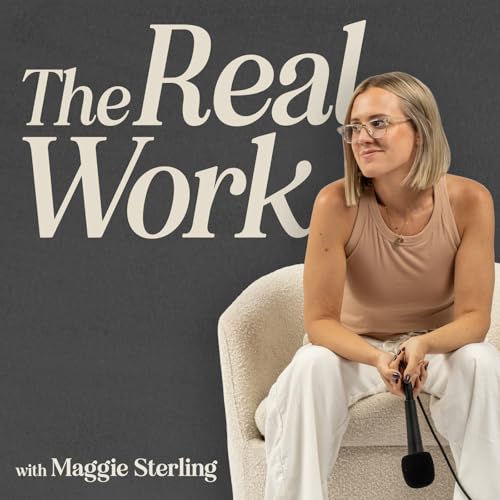
06 - How to Stop Letting Other People Ruin Your Day
Échec de l'ajout au panier.
Échec de l'ajout à la liste d'envies.
Échec de la suppression de la liste d’envies.
Échec du suivi du balado
Ne plus suivre le balado a échoué
-
Narrateur(s):
-
Auteur(s):
À propos de cet audio
Discover why your triggers are actually pointing you back to yourself, not at others. Learn the difference between top-down and bottom-up approaches to emotional regulation, and why taking responsibility for your triggers is the key to reclaiming your power.
What You'll LearnThe Truth About Triggers and Emotional Responsibility Most people believe their triggers are someone else's fault, but this episode reveals why that perspective keeps you powerless. The hosts explore how triggers actually serve as information about your internal beliefs and patterns, not verdicts about other people's behavior. They discuss the hidden space between circumstances and your emotional reaction, where your meaning-making machine creates the stories that drive your feelings.
Understanding Your Nervous System Response When you're triggered, your nervous system responds as if you're in physical danger, even during modern situations like work emails or difficult conversations. The episode breaks down why your prefrontal cortex goes offline during these moments, making rational thinking nearly impossible. You'll learn about the 90-second rule for emotional regulation and why fighting the physical response often makes it worse.
Top-Down vs Bottom-Up Approaches to Healing The conversation explores two complementary approaches to emotional regulation. Top-down work focuses on thoughts and cognitive patterns, while bottom-up work addresses the body and nervous system. The hosts share why relying on only one approach often falls short and how integrating both creates lasting change.
Practical Applications for Real Life Through personal examples including road rage and workplace triggers, the episode demonstrates how to allow emotions to move through your system without feeding them. You'll discover how to create space between trigger and response, identify the underlying beliefs creating your reactions, and use this awareness to make conscious choices rather than reactive decisions.
Relationship Dynamics and Accountability The hosts tackle the nuanced balance between taking responsibility for your emotional reactions and addressing genuinely problematic behavior from others. They explore how trigger work transforms relationships by removing the need for others to change for you to feel okay, while still maintaining healthy boundaries.


